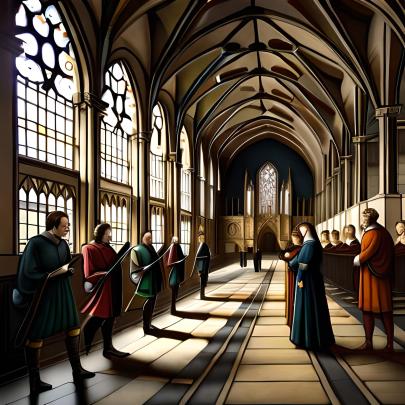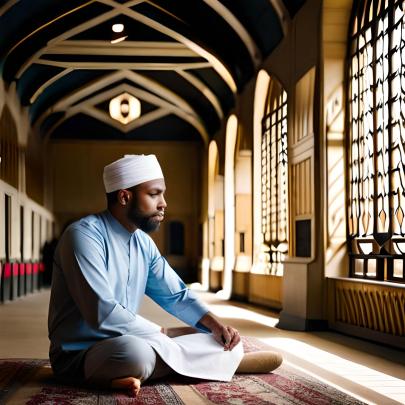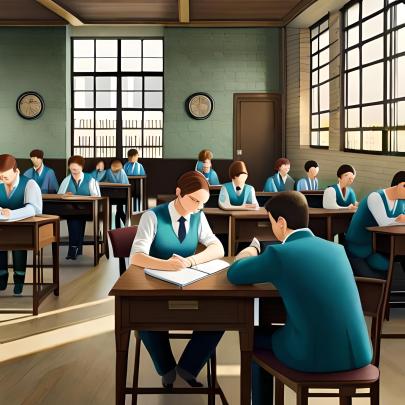Exams are a fundamental component of educational systems all over the world and are an essential tool for assessing students' academic progress. Throughout their academic careers, students will encounter exams in a variety of forms, whether they love them or hate them. However, have you ever questioned who created exams? In this article, we'll set out on a fascinating historical journey to learn more about the origins of exams, tracing their origins to prehistoric societies and charting their development over time.
Ancient Civilizations: The Cradle of Assessment

To understand the inception of exams, we must delve into the history of ancient civilizations, where the foundations of educational assessment were laid. The earliest documented evidence of formal examinations can be traced back to ancient China, approximately 2,000 years ago, during the Han Dynasty (206 BC–220 AD). These exams were known as the "Imperial Examinations" or "Keju" system.
The Keju system aimed to select individuals for government positions based on their intellectual abilities. The examinations consisted of rigorous tests on various subjects, including Confucian classics, history, and law. Successful candidates would secure prestigious positions within the bureaucracy, enjoying wealth, status, and influence. The Keju system had a profound impact on Chinese society, emphasizing the importance of education and creating a meritocratic system that shaped the nation's governance for centuries.
Middle Ages: Rise of Educational Institutions and Religious Examinations

During the Middle Ages in Europe, as educational institutions emerged, the need for standardized assessments became apparent. Monastic and cathedral schools played a significant role in educating the clergy, and exams were used to gauge the students' understanding of religious texts and doctrines.

In this period, examinations primarily served a religious purpose. Students aspiring to join religious orders were examined on their knowledge of Latin, theology, and scripture. These assessments aimed to ensure that only qualified individuals progressed through the ranks and became priests or monks. The exams were often oral, requiring students to demonstrate their understanding and memorization of religious teachings.
The Influence of Islamic Education

While the Western world was developing its own system of examinations, Islamic education was making significant strides in the field of assessment. Islamic civilization flourished from the 8th to the 14th centuries, and education played a crucial role in society. The Madrasahs, Islamic educational institutions, embraced a comprehensive system of evaluation.
Students were assessed through various methods, including oral examinations, written tests, and debates. The examinations covered a wide range of subjects, including Quranic studies, Arabic grammar, mathematics, astronomy, and Islamic law. Islamic scholars believed that examinations were vital in ensuring the authenticity and depth of knowledge acquired by students.
Evolution of Exams in the Modern Era

As societies progressed and education systems evolved, exams underwent significant changes, adapting to the needs and demands of each era. Here, we explore some key milestones in the development of exams in the modern era.
1. Renaissance and Humanism: During the Renaissance period, humanist ideas led to a broader and more comprehensive approach to education. Exams shifted from mere regurgitation of religious texts to a more holistic assessment of students' knowledge, including areas like philosophy, literature, and mathematics. Scholars such as John Locke emphasized the importance of evaluating students' understanding rather than their ability to memorize information.
2. Industrial Revolution and Standardized Testing: The Industrial Revolution brought about a need for a standardized workforce. As a result, written exams gained popularity as a means of assessing individuals' suitability for specific roles. These exams measured basic literacy and numeracy skills required for industrial jobs. The British civil service examinations, which started in the mid-19th century, became a model for many other countries' civil service recruitment processes.
3. Educational Reforms: In the late 19th and early 20th centuries, educational reforms aimed to create more inclusive systems. Examinations became a way to provide equal opportunities for students, allowing them to showcase their abilities and progress to higher levels of education. The introduction of comprehensive exams, such as the French baccalaureate and the German Abitur, marked a shift toward evaluating students' overall knowledge and skills rather than focusing solely on individual subjects.

4. Standardized Testing: Over the course of the 20th century, standardized testing evolved into a trustworthy way to evaluate the performance of sizable student populations. The SAT and ACT tests, now widely used in the US for college admissions, were developed by the Educational Testing Service (ETS) and other businesses. Standardized testing was created to ensure fairness in the evaluation process and to level the playing field for students from various backgrounds.
5. Online Exams: With the advent of the internet and digital technologies, online exams have become increasingly common. These exams offer convenience, flexibility, and faster result processing. However, they also present challenges related to security and cheating prevention.
The Purpose and Impact of Exams

Throughout history, exams have served several purposes. They have been used to assess knowledge and understanding, identify talent, select individuals for specific roles, and enable social mobility. Exams have played a crucial role in shaping education systems, influencing curricula, and providing accountability. However, exams have also faced criticism for their potential to foster a culture of memorization, limit creativity, and induce stress and anxiety among students.
Alternative Assessment Methods
In recent years, educators and researchers have explored alternative assessment methods to supplement or replace traditional exams. These include project-based assessments, portfolios, presentations, and group work, which aim to evaluate critical thinking, problem-solving, and collaboration skills. The goal is to move away from a one-size-fits-all approach and provide a more comprehensive evaluation of students' abilities.

While the exact origins of exams may be difficult to pinpoint, they have undoubtedly evolved and adapted throughout history to suit the changing needs of societies and educational systems. From the ancient Imperial Examinations in China to the standardized tests of the modern era, exams have played a significant role in evaluating knowledge and skills. As education continues to evolve, it is crucial to consider alternative assessment methods that align with contemporary pedagogical goals, promoting a more holistic and comprehensive evaluation of students' abilities. By understanding the historical context and evolution of exams, we can better appreciate their strengths, limitations, and potential for improvement in the future.